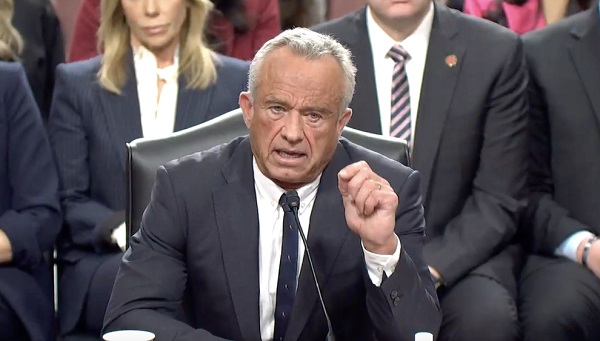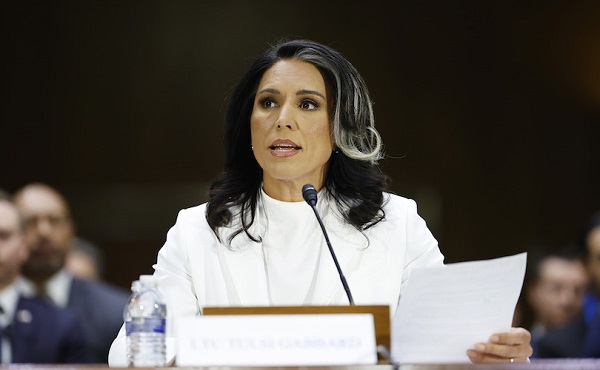Uncategorized
Top House Dems raise prospect of impeachment, jail for Trump

WASHINGTON — Top House Democrats have raised the prospect of impeachment or the real possibility of prison time for President Donald Trump if it’s proved that he directed illegal hush-money payments to women, adding to the legal pressure on the president over the Russia investigation and other scandals.
“There’s a very real prospect that on the day Donald Trump leaves office, the Justice Department may indict him, that he may be the first president in quite some time to face the real prospect of jail time,” said Rep. Adam Schiff, the incoming chairman of the House intelligence committee. “The bigger pardon question may come down the road as the next president has to determine whether to pardon Donald Trump.”
Rep. Jerry Nadler, the incoming chairman of the House Judiciary Committee, described the details in prosecutors’ filings Friday in the case of Trump’s former personal lawyer, Michael Cohen, as evidence that Trump was “at the
“They would be impeachable
In the filings, prosecutors in New York for the first time link Trump to a federal crime of illegal payments to buy the silence of two women during the 2016 campaign. Special counsel Robert Mueller’s office also laid out previously undisclosed contacts between Trump associates and Russian intermediaries and suggested the Kremlin aimed early on to influence Trump and his Republican campaign by playing to both his political and personal business interests.
Trump has denied wrongdoing and has compared the investigations to a “witch hunt.”
Nadler, D-N.Y., said it was too early to say whether Congress would pursue impeachment proceedings based on the illegal payments alone because lawmakers would need to weigh the gravity of the
Regarding the illegal payments, “whether they are important enough to justify an impeachment is a different question, but certainly they’d be impeachable
Mueller has not said when he will complete a report of any findings, and it isn’t clear that any such report would be made available to Congress. That would be up to the attorney general. Trump on Friday said he would nominate former Attorney General William Barr to the post to succeed Jeff Sessions.
Nadler indicated that Democrats, who will control the House in January, will step up their own investigations. He said Congress, the Justice Department and the special counsel need to dig deeper into the allegations, which include questions about whether Trump lied about his business arrangements with Russians and about possible obstruction of justice.
“The new Congress will not try to shield the president,” he said. “We will try to get to the bottom of this, in order to serve the American people and to stop this massive conspiracy — this massive fraud on the American people.”
Schiff, D-Calif., also stressed a need to wait “until we see the full picture.” He has previously indicated his panel would seek to look into the Trump family’s business ties with Russia.
“I think we also need to see this as a part of a broader pattern of potential misconduct by the president, and it’s that broad pattern, I think, that will lead us to a conclusion about whether it rises to the level to warrant removal from office,” Schiff said.
In the legal filings, the Justice Department stopped short of accusing Trump of directly committing a crime. But it said Trump told Cohen to make illegal payments to porn actress Stormy Daniels and former Playboy model Karen McDougal, both of whom claimed to have had affairs with Trump more than a decade ago.
In separate filings, Mueller’s team detail how Cohen spoke to a Russian who “claimed to be a ‘trusted person’ in the Russian Federation who could offer the campaign ‘political synergy’ and ‘synergy on a government level.'” Cohen said he never followed up on that meeting. Mueller’s team also said former campaign chairman Paul Manafort lied to them about his contacts with a Russian associate and Trump administration officials, including in 2018.
Republican Sen. Marco Rubio of Florida called the latest filings “relevant” in judging Trump’s fitness for office but said lawmakers need more information to render judgment. He also warned the White House about considering a pardon for Manafort, saying such a step could trigger congressional debate about limiting a president’s pardon powers.
Such a move would be “a terrible mistake,” Rubio said. “Pardons should be used judiciously. They’re used for cases with extraordinary circumstances.”
Sen. Angus King, an independent from Maine and a member of the Senate intelligence committee, cautioned against a rush to impeachment, which he said citizens could interpret as “political revenge and a coup against the president.”
“The best way to solve a problem like this, to me, is elections,” King said. “I’m a conservative when it comes to impeachment. I think it’s a last resort and only when the evidence is clear of a really substantial legal violation. We may get there, but we’re not there now.”
Democratic Sen. Chris Murphy of Connecticut urged Mueller to “show his cards soon” so that Congress can make a determination early next year on whether to act on impeachment.
“Let’s be clear: We have reached a new level in the investigation,” Murphy said. “It’s important for Congress to get all of the underlying facts and data and evidence that the special counsel has.”
Nadler spoke on CNN’s “State of the Union” Sunday, Rubio was on CNN and ABC’s “This Week,” and Schiff appeared on CBS’ “Face the Nation.” Murphy spoke on ABC, and King was on NBC’s “Meet the Press.”
Hope Yen, The Associated Press
Uncategorized
Poilievre on 2025 Election Interference – Carney sill hasn’t fired Liberal MP in Chinese election interference scandal

From Conservative Party Communications
“Yes. He must be disqualified. I find it incredible that Mark Carney would allow someone to run for his party that called for a Canadian citizen to be handed over to a foreign government on a bounty, a foreign government that would almost certainly execute that Canadian citizen.
“Think about that for a second. We have a Liberal MP saying that a Canadian citizen should be handed over to a foreign dictatorship to get a bounty so that that citizen could be murdered. And Mark Carney says he should stay on as a candidate. What does that say about whether Mark Carney would protect Canadians?
“Mark Carney is deeply conflicted. Just in November, he went to Beijing and secured a quarter-billion-dollar loan for his company from a state-owned Chinese bank. He’s deeply compromised, and he will never stand up for Canada against any foreign regime. It is another reason why Mr. Carney must show us all his assets, all the money he owes, all the money that his companies owe to foreign hostile regimes. And this story might not be entirely the story of the bounty, and a Liberal MP calling for a Canadian to be handed over for execution to a foreign government might not be something that the everyday Canadian can relate to because it’s so outrageous. But I ask you this, if Mark Carney would allow his Liberal MP to make a comment like this, when would he ever protect Canada or Canadians against foreign hostility?
“He has never put Canada first, and that’s why we cannot have a fourth Liberal term. After the Lost Liberal Decade, our country is a playground for foreign interference. Our economy is weaker than ever before. Our people more divided. We need a change to put Canada first with a new government that will stand up for the security and economy of our citizens and take back control of our destiny. Let’s bring it home.”
Uncategorized
Canada Needs A Real Plan To Compete Globally

From the Frontier Centre for Public Policy
Ottawa’s ideological policies have left Canada vulnerable. Strategic action is needed now
As Canada navigates an increasingly complex geopolitical landscape, the next federal government must move beyond reflexive anti—Americanism regardless of its political leanings. Instead, Canada should prioritize national interests while avoiding unnecessary conflict and subservience.
The notion that Canada can stand alone is as misguided as the idea that it is only an economic appendage of the United States. Both perspectives have influenced policy in Ottawa at different times, leading to mistakes.
Rather than engaging in futile name-calling or trade disputes, Canada must take strategic steps to reinforce its autonomy. This approach requires a pragmatic view rooted in Realpolitik—recognizing global realities, mitigating risks, governing for the whole country, and seizing opportunities while abandoning failed ideologies.
However, if Washington continues to pursue protectionist measures, Canada must find effective ways to counteract the weakened position Ottawa has placed the country in over the past decade.
One key strategy is diversifying trade relationships, notably by expanding economic ties with emerging markets such as India and Southeast Asia. This will require repairing Canada’s strained relationship with India and regaining political respect in China.
Unlike past Liberal trade missions, which often prioritized ideological talking points over substance, Canada must negotiate deals that protect domestic industries rather than turning summits into platforms for moral posturing.
A more effective approach would be strengthening partnerships with countries that value Canadian resources instead of vilifying them under misguided environmental policies. Expand LNG exports to Europe and Asia and leverage Canada’s critical minerals sector to establish reciprocal supply chains with non-Western economies, reducing economic reliance on the U.S.
Decades of complacency have left Canada vulnerable to American influence over its resource sector. Foreign-funded environmental groups have weakened domestic energy production, handing U.S. industries a strategic advantage. Ottawa must counter this by ensuring Canadian energy is developed at home rather than allowing suppressed domestic production to benefit foreign competitors.
Likewise, a robust industrial policy—prioritizing mining, manufacturing, and agricultural resilience—could reduce dependence on U.S. and Chinese imports. This does not mean adopting European-style subsidies but rather eliminating excessive regulations that make Canadian businesses uncompetitive, including costly domestic carbon tariffs.
Another key vulnerability is Canada’s growing military dependence on the U.S. through NORAD and NATO. While alliances are essential, decades of underfunding and neglect have turned the Canadian Armed Forces into little more than a symbolic force. Canada must learn self-reliance and commit to serious investment in defence.
Increasing defence spending—not to meet NATO targets but to build deterrence—is essential. Ottawa must reform its outdated procurement processes and develop a domestic defence manufacturing base, reducing reliance on foreign arms deals.
Canada’s vast Arctic is also at risk. Without continued investment in northern sovereignty, Ottawa may find itself locked out of its own backyard by more assertive global powers.
For too long, Canada has relied on an economic model that prioritizes federal redistribution over wealth creation and productivity. A competitive tax regime—one that attracts investment instead of punishing success—is essential.
A capital gains tax hike might satisfy activists in Toronto, but it does little to attract investments and encourage economic growth. Likewise, Ottawa must abandon ideological green policies that threaten agri-food production, whether by overregulating farmers or ranchers. At the same time, it must address inefficiencies in supply management once and for all. Canada must be able to feed a growing world without unnecessary bureaucratic obstacles.
Ottawa must also create an environment where businesses can innovate and grow without excessive regulatory burdens. This includes eliminating interprovincial trade barriers that stifle commerce.
Similarly, Canada’s tech sector, long hindered by predatory regulations, should be freed from excessive government interference. Instead of suffocating innovation with compliance mandates, Ottawa should focus on deregulation while implementing stronger security measures for foreign tech firms operating in Canada.
Perhaps Ottawa’s greatest mistake is its knee-jerk reactions to American policies, made without a coherent long-term strategy. Performative trade disputes with Washington and symbolic grandstanding in multilateral organizations do little to advance Canada’s interests.
Instead of reacting emotionally, Canada must take proactive steps to secure its economic, resource, and defence future. That is the role of a responsible government.
History’s best strategists understood that one should never fight an opponent’s war but instead dictate the terms of engagement. Canada’s future does not depend on reacting to Washington’s policies—these are calculated strategies, not whims. Instead, Canada’s success will be determined by its ability to act in the interests of citizens in all regions of the country, and seeing the world as it is rather than how ideological narratives wish it to be.
Marco Navarro-Génie is the vice president of research at the Frontier Centre for Public Policy. With Barry Cooper, he is co-author of Canada’s COVID: The Story of a Pandemic Moral Panic (2023).
-

 COVID-192 days ago
COVID-192 days agoStudy finds nearly half of ‘COVID deaths’ had no link to virus
-

 International2 days ago
International2 days agoIce Surprises – Arctic and Antarctic Ice Sheets Are Stabilizing and Growing
-

 Alberta2 days ago
Alberta2 days agoCharges laid in record cocaine seizure
-

 2025 Federal Election1 day ago
2025 Federal Election1 day agoCarney says Liberals won’t make voting pact with NDP
-

 Autism1 day ago
Autism1 day agoNIH, CMS partner on autism research
-

 Alberta2 days ago
Alberta2 days agoEnergy projects occupy less than three per cent of Alberta’s oil sands region, report says
-

 Energy2 days ago
Energy2 days agoOil tankers in Vancouver are loading plenty, but they can load even more
-

 Business19 hours ago
Business19 hours agoOttawa foresees a future of despair for Canadians. And shrugs






